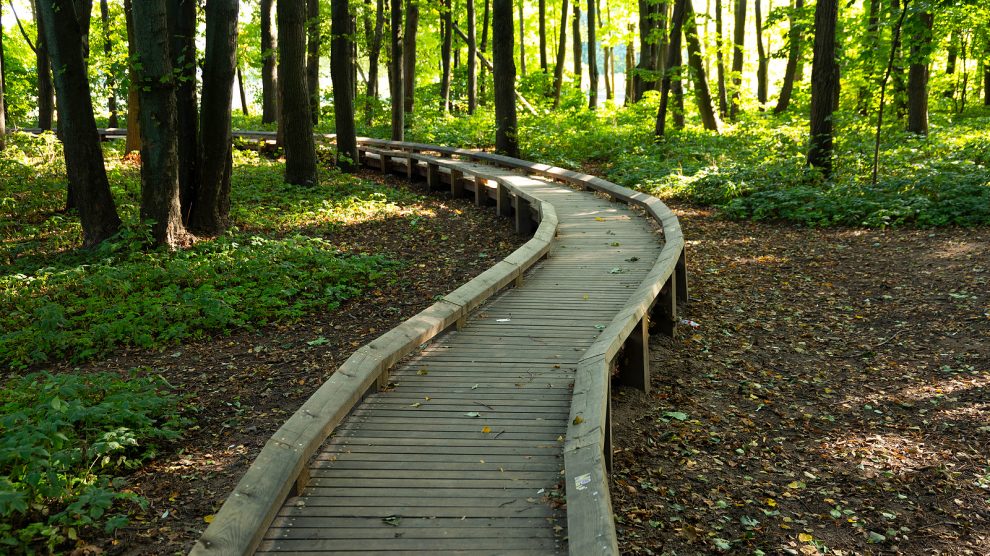With 672.5 billion euros at stake, decisions taken behind closed doors could hinder an efficient green recovery in Central and Eastern Europe, says the World Wildlife Fund.
EU member states in Central and Eastern Europe (CEE) did not properly engage stakeholders and citizens when developing the first drafts of their National Recovery and Resilience Plans (NRRP), an EU mechanism that is necessary to access funds under the Recovery and Resilience Facility, WWF Central and Eastern Europe (WWF-CEE) has claimed.
WWF-CEE’s analysis of the draft NRRPs concludes that this has led to unambitious and vague plans that will just perpetuate the unsustainable status-quo. Consequently, WWF-CEE is asking for an immediate review of the NRRPs through a transparent and extensive consultation process.
The new EU Recovery and Resilience Facility (RRF) is overwhelmingly the biggest financial mechanism under the Next Generation EU recovery funds – 672.5 billion euros of loans and grants.
The facility can be accessed by member states once they develop a National Recovery and Resilience Plan that is aligned with their National Energy and Climate Plans, Just Transition Plans and EU Semester recommendations, and assessed by the European Commission before being approved.
- Mining companies need to adopt ESG principles
- Czech Coal Commission likely to approve 2038 as coal phase out date
- Emerging Europe is failing to protect citizens from air pollution
Even though the deadline for submission is April 30, the Commission has encouraged member states to submit their preliminary draft plans. Many of the countries in Central and Eastern Europe, including Bulgaria, Romania and Slovakia, have already released their draft NRRPs.
“What is disturbing is that most of these plans were decided and elaborated behind closed doors, and demonstrated preference for old and unsustainable projects, pre-crisis approaches, and lack of ambition,” says Irene Lucius, regional conservation director, WWF Central and Eastern Europe.
Importance of participation and transparency
The European Parliament released a report on the RRF in October 2020 which highlighted the importance of participation and transparency.
The report mentions that in preparation for their NRRPs, member states are required to establish “multilevel dialogue” with local authorities, social partners and civil society organisations, and to provide a summary of those consultations to the European Commission for assessment.
This requirement underlines the partnership principle and the European Code of Conduct on Partnership (that became a legal act in 2014) that are meant to ensure the participation of the public in EU funds.
WWF-CEE says that citizens and civil society must be engaged in the decision-making process on green recovery spending.
“The choices the authorities are making now to fight the pandemic, in an effort to resolve the health system crisis and reduce the shocks in the economy, will have a profound impact on our future. This is especially valid for Central and Eastern Europe countries where green recovery investments can be more impactful and RRF grants represent a significant share of the GDP.”
Comprehensive dialogue
In September, the European Commission called on member states to initiate a comprehensive political dialogue as soon as possible, including the social partners and other relevant stakeholders to prepare their recovery and resilience plans.
Romania followed this recommendation only at the end of November. The government published a calendar of public debates after the first version of the plan had already been developed. Subsequently, given the political situation generated by a parliamentary election, the debates were postponed. WWF-CEE says that these must now be rescheduled for the first half of January 2021, thus allowing proper public consultation in line with EU recommendations.
In Bulgaria, the NRRP was developed by an inter-ministerial working group. After months of lack of information, transparency or public dialogue, the plan was presented at the end of October and opened for public comments until November 29. It is, however, unclear how the views and recommendations of stakeholders will be evaluated and integrated into the NRRP.
“This raises concerns that the consultations are more of a formality and less relevant,” says WWF-CEE.
Even if the process was sometimes unclear and with short deadlines,Slovakia did make an effort to consult experts, including NGOs, claims WWF-CEE. However, the first version presented at the beginning of October exceeds the allocated RRF funding for Slovakia, and this raises questions regarding what exact measures will be included in the final NRRP.
Hungary meanwhile has not yet published the first version of its NRRP. The process has been very opaque; lacking transparency and involving only state authorities. No arrangements for public consultation and participation are known at this point.
WWF-CEE is asking that civil society be invited to a co-working process on the NRRP, and that their observations will be analysed and taken into account in the next version of the plan.
—
Unlike many news and information platforms, Emerging Europe is free to read, and always will be. There is no paywall here. We are independent, not affiliated with nor representing any political party or business organisation. We want the very best for emerging Europe, nothing more, nothing less. Your support will help us continue to spread the word about this amazing region.
You can contribute here. Thank you.


